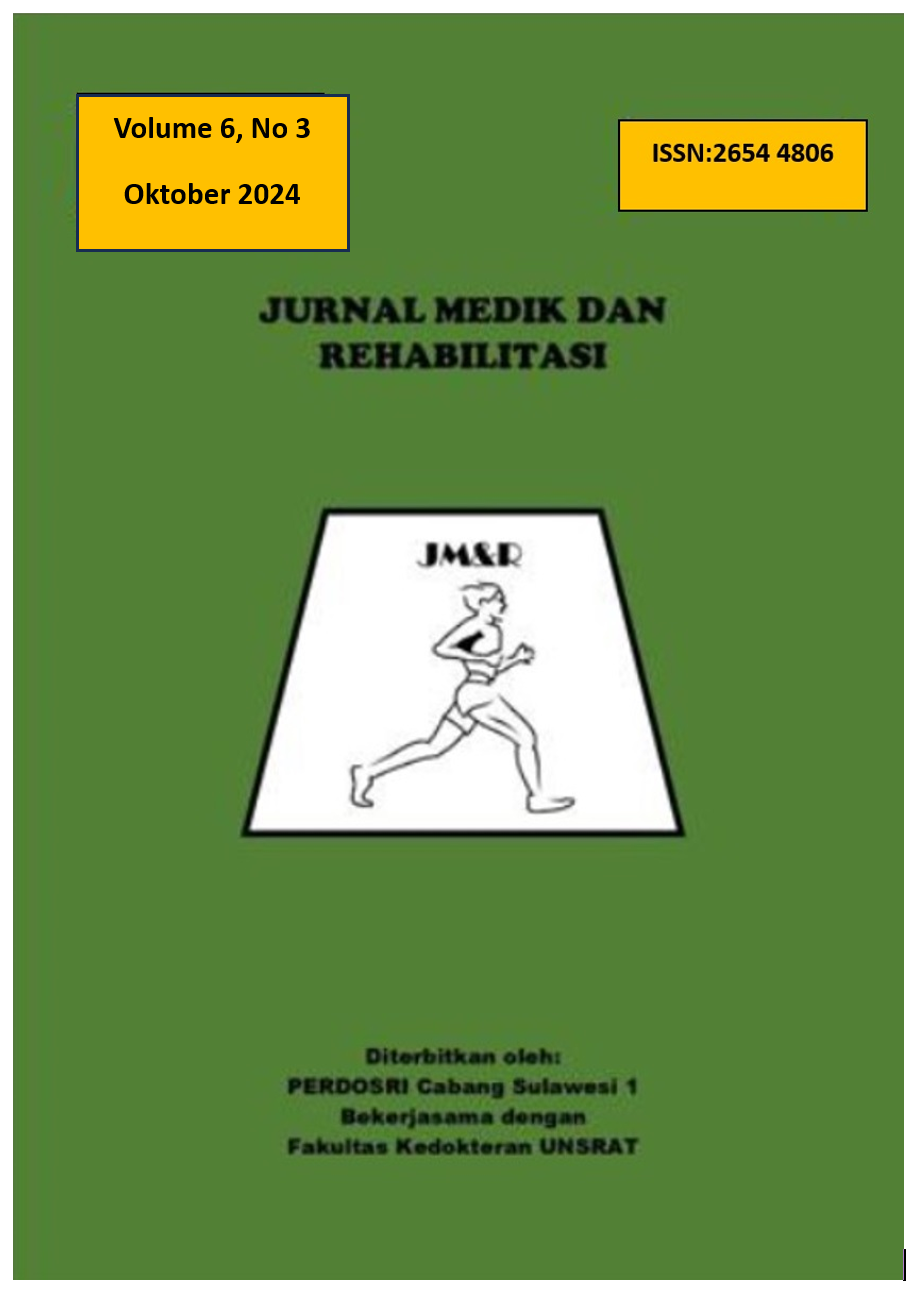Medical Rehabilitation in Geriatric Patient with Post Right Total Knee Arthoplasty
Abstract
Abstract : Total knee arthroplasty (TKA) is a surgical procedure that is often performed in geriatric patients with
advanced osteoarthritis (OA). This action aims to reduce pain, improve knee joint function, and improve mobility.
However, post-TKA recovery in the elderly is often more complex, requiring integrated medical rehabilitation to
optimize clinical outcomes and quality of life. This study aims to evaluate the effectiveness of medical
rehabilitation programs in post-TKA geriatric patients in terms of functional recovery and improvement of quality
of life. This study uses a qualitative method with a case study approach on a 64-year-old male patient who has
undergone TKA on the right knee due to advanced OA. These patients also have comorbidities such as
hypertension and diabetes mellitus, which adds to the complexity of postoperative recovery. Data were collected
through clinical observations, interviews with patients and medical personnel, and reviews of patients' medical
records. The medical rehabilitation process includes several major interventions, such as Transcutaneous
Electrical Nerve Stimulation (TENS) for pain management, isometric exercises to increase quadriceps muscle
strength, as well as mobility training with the help of walkers. The results of the study showed that this medical
rehabilitation program provided a significant improvement in the patient's condition after a few weeks of therapy.
The patient's pain, which was initially measured by the Numerical Pain Scale (NPRS) at 5, decreased to 1 after
three weeks of therapy. In addition, the range of motion of the patient's knee joint increases from 20° to 110°,
allowing the patient to walk further and more stably without the help of tools. An increase in muscle strength is
also seen, where patients are able to perform daily activities independently, such as dressing, bathing, and walking
without the help of tools. The patient's Barthel Index score increased from 15 (mild dependence) to 20 (full
independence), which signified a significant increase in independence of daily activities. In addition to physical
improvements, patients also experience improvements in psychological aspects. There was a decrease in anxiety
and an improvement in sleep quality, which significantly contributed to an improvement in the overall quality of
life. The results of this study confirm that a comprehensive post-TKA medical rehabilitation approach, involving
a multidisciplinary team such as physiotherapists, nutritionists, and psychologists, is very effective in improving
the physical and mental functioning of geriatric patients. Medical rehabilitation in post-TKA geriatric patients is
effective in reducing pain, improving mobility, improving physical function, and overall quality of life.

